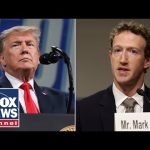In a dramatic turn of events, the Department of Justice announced the arrest of a Chinese national residing in Brentwood, California, just as this individual was preparing to board a flight bound for China. This arrest occurred after the suspect, Yinpiao Zhou, was reportedly caught flying a drone over Vandenberg Space Force Base, capturing photographs as if it were a casual day at the park. This tale unfolds against a backdrop of escalating concerns about Chinese surveillance and espionage activities.
Congressman Raj Krishnamoorthy from Illinois recently took to the media to share his insights on the implications of such incidents. He raised critical questions about drones that have been spotted flying over U.S. airspace. He emphasized the need for the current administration to be more transparent with the public about these sightings. Are these flying objects innocent civilian aircraft, or are they high-tech eyes in the sky sent by the Chinese Communist Party? The Congressman believes that a classified briefing would shed some light on this mysterious situation and expressed his growing concern regarding drones manufactured in China.
It’s no secret that China has a reputation for crafty tactics when it comes to spying, and Congressman Krishnamoorthy echoed this sentiment by highlighting legislation spearheaded by himself and others to curb the use of drones from Chinese manufacturers like DJI in American airspace. The reason? Those drones could potentially give the Chinese government sneaky access to American data. He’s on a mission to ensure that taxpayer money is not used to fund potentially harmful technologies from China, all while advocating for American drone manufacturers to step up and fill the void.
As chatter about drones heightens, so does scrutiny over apps like TikTok. Just recently, a federal court denied TikTok’s attempt to overturn a law that threatens to make them either find an American owner or face a ban in the U.S. by January 18th. Congressman Krishnamoorthy pointed out that this decision reflects a growing consensus among lawmakers that TikTok, which is controlled by the Chinese company ByteDance, poses a considerable security threat to American users. His main concern centers on the confidentiality of user data, which could potentially flow straight from TikTok’s servers to the Communist Party in China upon request.
In both the drone drama and the TikTok tension, the looming question is clear: what actual protections are in place to safeguard American citizens from foreign surveillance? The Congressman insists that legislative efforts must continue to prioritize national security over cheap foreign technology. The challenge lies ahead: how can the U.S. fortify its defenses while navigating the complex waters of trade and technology? Despite the serious nature of these issues, one thing remains certain: political maneuvering and unyielding determination will continue to make headlines as the U.S. grapples with its ever-watchful adversary in the East.
In this game of cat and mouse, transparency and action are crucial. American citizens deserve to know if their privacy is being compromised and what measures their government is taking to protect them. With rising concerns over data privacy and national security, it appears that this storyline is far from over, and the stakes could not be higher. So, buckle up folks, as it looks like the battle against foreign interference is heating up, one drone and one app at a time.




